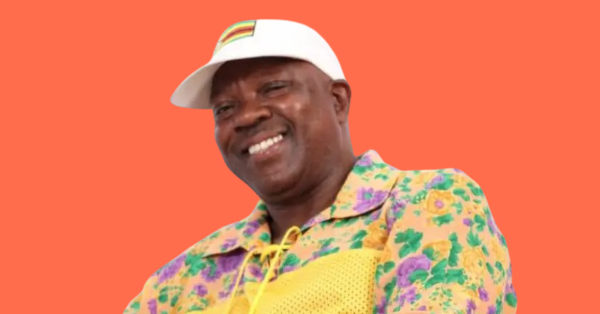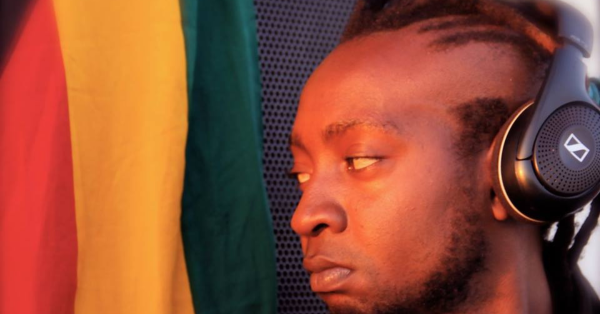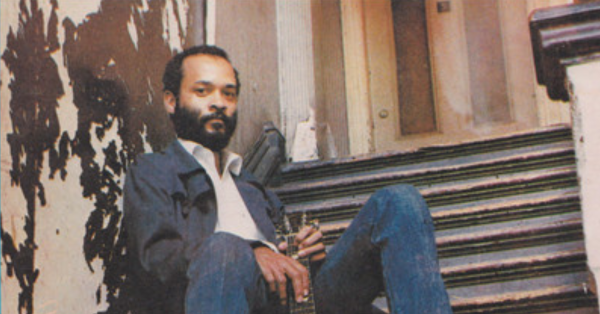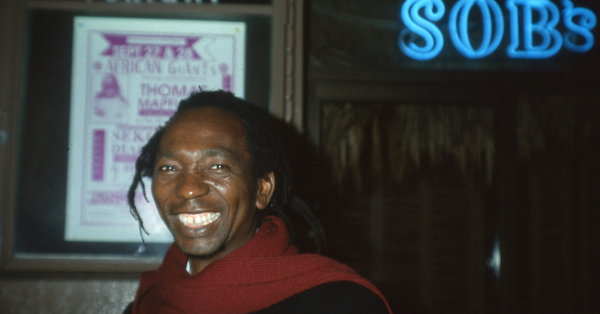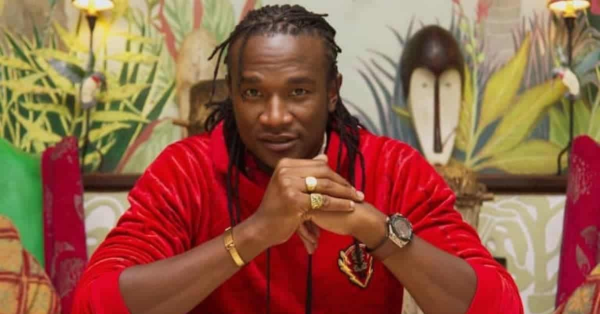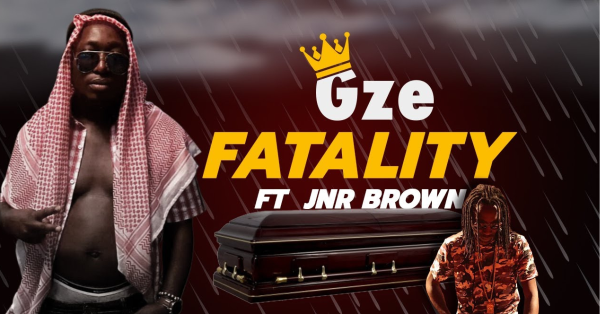Leonard Zhakata, for years, dominated Zimbabwe’s hit parade with the flamboyance of Michael Jackson, the radicalism of Bob Marley, the piety of Jimmy Swaggart and proverbial turns of verse evocative of a rich Shona past.
Each time he entered the studio, Zhakata murdered competition, issued a new edition of Shona idioms, pleaded lawsuits for the economically deprived, navigated new dimensions of emotion and caused few headaches in the corridors of power.
Zhakata’s compositions were a thing of marvel. He was widely credited, on good reason, as the country’s finest song-writer, effortlessly blending depth and immediacy.
Early into his career, his claim was staked as one of Zimbabwe’s all-time greats. Those spirited years of “Mugove,” “Unochemeyi?” “Upenyu Mutoro” and “Handina Wangu.”
But at the turn of the millennium, when his reign was sure, Zhakata set about an experiment which set his fame on the line.
Riffing away from the immediacy of the sungura/kwasa kwasa fusion which had propelled him to the top in the heady 1990s, he created a laid-back, introverted signature sound which he called Zora (Zhakata in Original Rhythms of Africa).
While decidedly mature and original, the Zora experiment flew over many heads.
His overtly political lyrics, from Mubikira (2000) to Gotwe (2011) kept most of his songs of air, where his kingship had been determined.
Without the airplay, there was no breakout reception to talk about. Only a wafer-thin, diehard Zora guild stuck with him.
He was heard to complain in one of his endless lamentations, “And you, Zora, you have a boot on your back, croaking away with no one to hear you” (Tinevimbo, 2006). He was seen wear a muzzle, hands stretched out apparently to appeal censorship on the sleeve of one of his more recent offerings.
It was the lost decade.
Zhakata hinted a turning point when he released a spiritually coloured album for a change.
Zvangu Zvaita (2013) trended well on radio, crashed Radio Zimbabwe’s the end of year charts at number 1, 2 and 7 and even took a few gongs.
With Mutunga Dzese (2016), Zhakata swept the charts even more assertively at number 1-3 while maintaining his conscious profile.
Zhakata had primed fans for an album in the order of his classic hits. Mutunga Dzese is certainly not in the class of Maruva Enyika or Ngingaite Sei? but reasserts Zhakata’s stature in a big ways.
“Madam Boss,” the hit song off the latest offering recently earned Zhakata a first, amassing a record 10 845 listener votes in one week. The track has topped the Radio Zimbabwe chart for more than a month.
Hardly known for self-calling, this time Zhakata insisted that the success of the song, featuring Dendera heir Sulumani Chimbetu and powerful vocalist Progress Chipfumo proves he had returned to his glory days.
“The voting patterns prove Zhakata is among the country’s top five musicians, contrary to speculative thinking by some armchair critics who seem to be hell-bent on pulling Zhakata down,” his camp said in a statement to the media.
The song, however, has no hints of a classic. It boldly cuts away from usual Zora, with Zhakata riding on an Oskid production. Add the lightheadedness to the song to the ephemeral quality of digital recordings and you have a song that would be forgotten after Christmas.
But who can blame Zhakata for going the party song route when overthinking proved to be his undoing in the past?
“Zvine Mwaka,” a more reflective track also squeezed into the voters’ picks. Zhakata has previously said he has more faith in listener votes than awards as they represent the unmediated response of the audience.
On the back of the album’s success Zhakata has toured Banket, Beitbridge, Chegutu, Chivhu, Glendale, Guruve, Kadoma, Kwekwe, Mabvuku Marondera, Masvingo, Mvurwi, Mt Darwin, Mutoko, Nyamapanda, Shamva and Shurugwi and trended well in the capital city.
On the downside, mastering flaws do not do justice to Zhakata’s vocals. Maybe he was pressured by mega-launch deadlines to rush the project through.
A tardy marketing approach which has been Zhakata’s undoing in many years saw pirates jeopardising the commercial reception of the album.
But the album held its own among the most noteworthy productions this year, if only for Zhakata’s time-tested lyrical ability on a number of the tracks.
“Madam Boss” is ironically nothing like trademark Zora and closer to shortlived, digital party songs. But what is a Zhakata album without a love song? Even the heavily theological previous album had an adequate slot for these.
The distinctive vocalists gel beautifully, oozing flattery for a crushworthy, well-to-do woman.
But the song which extols a beauty amply splashed on the social scene and front page is the only tabloid-style offering on the album.
Most of the remaining tracks stretch Zhakata’s political commentary to unprecedented limits.
In “Tsvimbo Dzeumambo,” Zhakata outlines the job description of his ideal political leader. In keeping with his tradition, spiritual petitions are blended with scathing political satire, hence the Catholic-style refrain, “Tinzweiwo Mambo.”
The song is a liberation theologian’s state of the nation address.
Mindful of the magnitude of his task, he asks God to allow him to voice the aspirations of the nation without self-censorship.
His poetic mastery is in evidence with figures of melody like, “Nhoroondo yedu izere mavara. Tsamwa dzevaridzi vemhaka dzinofushira gungwa.”
I am not sure Zhakata is credited enough for these originalities. For me, transcripts of his discography will leave him with few contenders across Zimbabwe’s literary scene.
For example, in their simplicity, lines off a 2011 track, “Yangu misodzi yerudo madonhwe aoera,” for example, parallel Yeats in his element, “Tread carefully because you tread on my dreams.”
“Tsvimbo Dzeumambo” is an unsparing indictment on the current crop of leadership. Zhakata’s charge sheet outlines corruption, strife, brutality and greed and all manner of mischief.
His exasperation over blind loyalty and bandwagonism, the bane of politics, is captured in the lines, “Ruzhinji kutsikana zvitsitsinho tichingoteverana!”
Zhakata urges to the contrary that voting be informed by the history and qualities of candidates. Drums’ preponderance over the rhythm guitar brings a new feel to the track.
Zhakata continues his civic strivings in “Mutungadzose,” an even more scathing state of the nation address.
The song is rather wordy, though, like a tedious sermon. Here Zhakata sounds more of an essayist than a lyricist.
I feel this is a weakness shared by a number of musicians. Trimming a song to a few catchy lines could have assured a better impression. Soothing guitar riffs, one could say evocative of “Mugove,” makes the sermon tolerable.
Again the song invokes God as the final arbiter in Zimbabwe’s political destiny. Whether there are political designs, they will cease. The God of the masses is Mutunga Dzese, the All-Powerful.
My personal favourite, “Zvine Mwaka,” pays homage to Zhakata’s core audiences, “vana vaBaba” (presumably fellow UFIC members), “Zora cadre” (the diehard fans who stuck with him through the years of obscurity) and “vashingi vashingi” the long-suffering underdog of whom he is an uncompromising champion.
I wish Zhakata had dispensed with the less inspired prelude. At all events, it is a great track which looks back at the Zora journey. It has already made it into the charts along with “Madam Boss.”
“Moyo Wekutenda” is a feel-good track in which he apparently thanks his spiritual mentors, Pastor Emmanuel Makandiwa and his wife Ruth. The other tracks seem to continue in this vein but do not sound as spirited.
Zhakata’s return to politically charged lyrics will not jeopardise the reception of his music this time. Radio is still important but alternative media is now all over.



